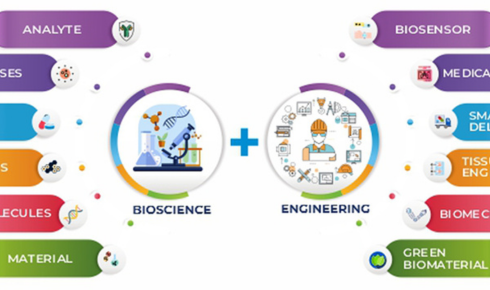Introduction
Biotechnology continues to push clinical innovation forward through the integration of AI, genetic insights, and precision medicine. Recent developments in antibody drug discovery, pediatric endocrinology, and respiratory care reflect how scientific advancement is translating into meaningful therapies. Whether through AI-powered protein design, targeted growth treatments for children with achondroplasia, or biologics for asthma exacerbation, these trials point to a future of highly individualized care.
Absci Launches First-in-Human Study of AI-Designed ABS-101
Absci has announced that the first participants have been dosed in its Phase 1 clinical trial of ABS-101, the first fully AI-designed and de novo antibody to enter human testing. ABS-101 targets TNF-alpha, a well-known inflammatory cytokine implicated in autoimmune disorders.
Key highlights of the trial include:
- Confirmation of safety and tolerability in healthy volunteers.
- Potential for superior pharmacokinetics compared to existing anti-TNF therapies.
- A groundbreaking demonstration of AI’s role in drug discovery.
If successful, ABS-101 could signal a paradigm shift in how therapeutics are designed, moving beyond traditional methods to rapid, algorithm-driven molecule creation. Absci announces first participants dosed in Phase 1 trial of ABS-101
Ascendis Pharma Shows Positive Results for TransCon CNP in Children with Achondroplasia
Ascendis Pharma has reported favorable data from its clinical study of TransCon CNP, a long-acting prodrug designed to improve height and skeletal health in children with achondroplasia, the most common form of dwarfism.
Study results demonstrated:
- Statistically significant improvements in annualized growth velocity.
- Positive changes in bone development without compromising safety.
- Once-weekly dosing, improving adherence and patient quality of life.
This therapy offers a promising option for families seeking non-invasive, effective solutions for a condition with limited medical treatments. Ascendis Pharma TransCon CNP improves growth, bone health in children with achondroplasia
Medikibart Shows Early Potential in Reducing Asthma Exacerbations
The SEABREEZE study, evaluating Medikibart, an IL-4 receptor alpha antibody, has shown early promise in managing asthma exacerbations in patients with moderate to severe asthma. Medikibart functions by targeting the inflammatory pathways involved in airway hyperresponsiveness.
Preliminary data suggest:
- Reduction in the frequency and severity of asthma attacks.
- Good safety and tolerability in the enrolled population.
- Potential to complement existing asthma biologics for broader disease control.
As the biologics market for respiratory conditions continues to grow, Medikibart could provide a much-needed addition for patients with uncontrolled symptoms. SEABREEZE study evaluating Medikibart for asthma exacerbations
Conclusion
Together, these studies reflect the dynamic evolution of clinical research—where AI design, genetic conditions, and chronic disease intersect. As platforms like ABS-101, TransCon CNP, and Medikibart advance, they bring us closer to personalized, data-driven care for a wide range of patients. For more updates on clinical innovation, visit Clinical Trial Vanguard.

